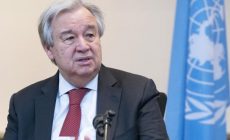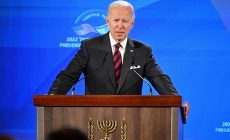Malaria boosted COVID-19 resistance – Research
- Posted on
- Comment

The prevalence of malaria in Africa played a major role to lower the effect of the COVID-19 pandemic as compared to the devastation on other continents.
That was the conclusion of a research conducted by scientists at the University of Ghana, Legon.
According to the findings, COVID-19 and malaria had similar symptoms, with the majority of the people being asymptomatic (without clinical symptoms).
The study also discovered that the high exposure to malaria parasites created clinical immunity for their tolerance which was acquired after repeated infections.
The tolerance that is acquired through bombardment with malaria parasites, the study revealed, helps in the fight against other pathogens that have similar mechanism of the disease such as COVID-19.
The Pro-Vice-Chancellor for Academic and Student Affairs of the university, Professor Gordon Akanzuwine Awandare, disclosed the findings of the research study at his inaugural lecture at the university last Thursday.
Prof. Awandare, who led a team to conduct the research, was speaking on the topic: “How our immune system acquires tolerance to malaria and helped us survive COVID-19”.
The lecture formed an essential component of the university’s programme for the academic year and every academic who rose to the rank of a professor in his or her career at the university was expected to deliver an inaugural lecture.
It offers the university the opportunity to recognise and showcase the academic achievement of its faculty and also enables professors to share their research with colleagues within and outside the university, while celebrating an important milestone with family and friends.
“Malaria is not such a curse.
Data indicates that malaria-induced tolerance to inflammatory stimulation protected us from severe COVID-19 and death,” he said.
Citing a series of research which the team conducted to arrive at their conclusion, Prof. Awandare, who is also the founding director of the West African Centre for Cell Biology of Infectious Pathogens (WACCBIP), said evidence from the research established that the immune system learnt how to tolerate malaria parasites after repeated infections by inhibiting the cells from responding to further stimulation.
It offers the university the opportunity to recognise and showcase the academic achievement of its faculty and also enables professors to share their research with colleagues within and outside the university, while celebrating an important milestone with family and friends.
“Malaria is not such a curse.
Data indicates that malaria-induced tolerance to inflammatory stimulation protected us from severe COVID-19 and death,” he said.
Citing a series of research which the team conducted to arrive at their conclusion, Prof. Awandare, who is also the founding director of the West African Centre for Cell Biology of Infectious Pathogens (WACCBIP), said evidence from the research established that the immune system learnt how to tolerate malaria parasites after repeated infections by inhibiting the cells from responding to further stimulation.
Quoting the WHO, Prof. Awandare said as of May 31, 2023, confirmed cases of the disease globally was 767,364,883 as against 9,532,788 recorded for Africa and 171,653 for Ghana. On the other hand, the number of confirmed deaths globally was 6,938,353, while that of Africa and Ghana were 176,371 and 1,462 respectively.
While acknowledging that the figures recorded for Africa and Ghana could be higher than the official figures, he said, the research disputed various theories that had been cited as the reasons for Africa’s low figures, including the fact that the weather of Africa made it difficult for the disease to survive among Africans.
He said the research work was done in Burkina Faso, Nigeria and Ghana where over 20,000 people were tested.
While calling on Africa to be ready for the next pandemic, Prof. Awandare said COVID-19 showed that Africa had scientists who could be counted on.
He, therefore, called for the building of scientific capacity and support for institutions such as the Noguchi Memorial Institute for Medical Research (NMIMR) so they could train more people and come up with more scientific works.
Prof. Awandare’s profile
The Vice-Chancellor of the university, Prof. Nana Aba Appiah Amfo, described Prof. Awandare as a professor of biochemistry born in Bolga in 1974.
He completed his O-Level at the Notre Dame Seminary Secondary School in Navrongo and A- Level at the Presbyterian Boys Secondary School, Legon, while obtaining his BSc and MPhil in Biochemistry from the University of Ghana.
He also obtained his PhD in Infectious Diseases and Microbiology from the University of Pittsburgh, Pennsylvania, USA.
Prof. Awandare has worked as a research assistant at the Immunology Unit of NMIMR, the University of Ghana, and the Unite d’Immunologie Moleculaire des Parasites, Institut Pasteur, Paris.
He was appointed lecturer at the Department of Biochemistry of the university in 2002 and later became the Pro-Vice-Chancellor for Academic and Student Affairs in December 2021.
He has expertise in cell and molecular biology, immunology and genetics and has done a lot of research works with the majority being on malaria.
-Graphic










 (Selorm) |
(Selorm) |  (Nana Kwesi)
(Nana Kwesi)